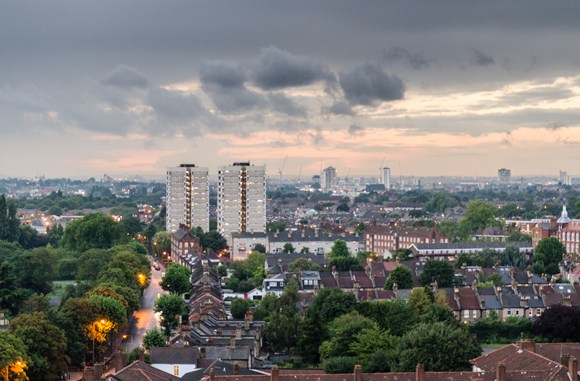Almost 78,000 London children are homeless and set to spend Christmas in temporary accommodation, according to new research from London Councils.
The cross-party group conducted a survey of London boroughs amid concerns that cost-of-living pressures are worsening the capital’s homelessness crisis.
From its analysis of the boroughs’ figures, London Councils estimates that overall there are 162,000 homeless Londoners living in temporary accommodation – equivalent to the entire population of some smaller boroughs. London accounts for almost two-thirds of England’s total temporary accommodation population.
The survey findings also suggest that more and more Londoners are turning to their borough for homelessness support. The number of homelessness presentations – when a resident tells their council that they are homeless or threatened with homelessness – were 14.2% higher in October 2022 compared to October 2021.
The lack of affordable housing options is a key factor driving homelessness in the capital – and boroughs are also struggling to secure suitable accommodation for the homeless households they have a duty to support. This supply challenge is reflected in the 237% increase in the number of temporary accommodation units landlords requested back from boroughs in October 2022 compared to the previous year.
London Councils, which represents all 32 boroughs and the City of London Corporation, has urged greater action on reducing homelessness – including boosting welfare support for low-income households.
The group also highlighted its concern that government plans to reform the Homelessness Prevention Grant – the main source of funding for local authorities to tackle and prevent homelessness – could lead to London losing up to 32% of the money currently received, despite the capital’s immense homelessness pressures.
Separate research commissioned by London Councils has recently revealed growing cost-of-living concerns in the capital, with one in four Londoners finding it difficult to manage financially.
Cllr Darren Rodwell, London Councils’ Executive Member for Regeneration, Housing & Planning, said:
“Every child should have a permanent home. It feels particularly grim at Christmas that so many thousands of Londoners are homeless and relying on temporary accommodation.
“These figures must serve as a wake-up call. We need renewed action on tackling homelessness in 2023, including through making better use of the welfare system to help low-income households afford their housing costs and avoid homelessness in the first place.
“We also need more funding guarantees from the government to sustain boroughs’ homelessness work. This is crucial for achieving our shared objectives on homelessness reduction, and we’re determined to work with ministers in making faster progress on this momentous challenge.”
London Councils is pushing for several changes to national policy on housing and homelessness, including:
An increase in the Local Housing Allowance (LHA) to improve support for low-income households in the private rented sector struggling to meet their housing costs. London Councils believes LHA rates should be increased to cover at least 30% of local market rates. The government’s decision to boost LHA at the height of the Covid-19 emergency was a key factor in preventing greater homelessness and London boroughs want to see a similar response to the current economic pressures facing households.
A pause in the government’s planned reforms to the Homelessness Prevention Grant. London Councils has warned that the changes proposed by the DLUHC are fundamentally flawed, as they would result in reduced funding for London despite the capital having the highest homelessness rates in the country. Boroughs believe the government should instead undertake a more fundamental review of homelessness funding – including the role played by welfare policy – ahead of the next Spending Review.
London Councils will continue to seek more long-term investment in affordable housing, particularly in homes for social rent. Boroughs want an end to the restrictions on how local authorities use the money raised from council house sales so that every penny raised can be reinvested in building a replacement home rather than sent to the Treasury.








